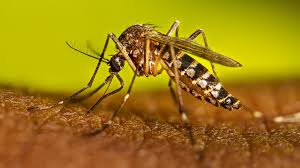
WHO Launches Global Strategic Plan to Combat Surge in Dengue and Other Aedes-Borne Diseases
In a decisive move to combat the alarming rise in dengue and other Aedes-borne arboviruses, the World Health Organization (WHO) has unveiled the Global Strategic Preparedness, Readiness, and Response Plan (SPRP).
The initiative aims to significantly reduce the disease burden, suffering, and fatalities linked to dengue, Zika, chikungunya, and other similar illnesses by fostering a unified, global response.
The SPRP outlines priority actions for countries affected by these vector-borne diseases, offering recommendations across multiple sectors such as disease surveillance, laboratory activities, vector control, community engagement, clinical management, and research and development. The plan adopts a whole-of-society and regional approach, emphasizing collaboration and integration across different levels of governance and society.
With an estimated four billion people currently at risk of contracting arboviral diseases worldwide—a figure projected to reach five billion by 2050—the urgency of this strategic plan cannot be overstated. Dengue cases have escalated dramatically across all six WHO regions, doubling each year since 2021. By the end of August 2024, the global tally of dengue cases surpassed 12.3 million, nearly double the 6.5 million cases reported for the entire year of 2023.
The rapid spread of dengue and other arboviral diseases in recent years has created a concerning trend that necessitates a coordinated response across sectors and borders. “From maintaining clean environments to supporting vector control and ensuring timely medical care, everyone has a role to play in the fight against dengue. This plan is a roadmap to reverse this rising trend, protect vulnerable populations, and pave the way for a healthier future,” stated Dr. Tedros Adhanom Ghebreyesus, WHO Director-General.
The current surge in dengue cases prompted WHO to declare the global dengue outbreak a Grade 3 health emergency—its highest level of emergency—in December 2023. This designation enables the organization to provide enhanced support to affected countries, helping them strengthen surveillance capacities and implement robust response activities.
The burden is particularly severe in regions with endemic transmission of the disease, such as South-East Asia, the Western Pacific, and the Americas. Africa is also facing a growing threat, as the region struggles to manage multiple health emergencies amid conflicts and natural disasters, further straining its fragile health systems.
Several factors contribute to the accelerated spread of dengue and other arboviral diseases, including unplanned urbanization, inadequate water, sanitation, and hygiene practices, climate change, and increased international travel. Dengue, which is now endemic in over 130 countries, has seen its geographical reach expand at an unprecedented rate.
The same pattern is being observed for other arboviral diseases like Zika and chikungunya, and more recently, the Oropouche virus in the Americas. This global escalation underscores the urgent need for a robust strategy to mitigate risks and safeguard vulnerable populations.
The Global SPRP is built around a framework designed to ensure successful outbreak management. Central to this strategy is effective emergency coordination, which involves establishing leadership and coordination activities to facilitate a streamlined response.
This is complemented by a focus on collaborative surveillance, strengthening early detection and control of outbreaks through enhanced indicator-based and event-based surveillance, epidemiological analysis, laboratory diagnostics, and field investigations. Another pillar of the plan is community protection, which aims to engage communities through active dialogue and local adaptation of prevention measures, including mosquito population control strategies. The strategy also emphasizes safe and scalable care by ensuring access to effective clinical management and resilient health services to minimize illness and mortality, while promoting research, innovation, and development of effective treatments and vaccines against dengue and other Aedes-borne diseases.
The SPRP will be implemented over the next year until September 2025 and requires an estimated US $55 million to support preparedness, readiness, and response efforts. It is aligned with the Global Vector Control Response 2017-2030, a global strategy to bolster vector control worldwide, and the Global Arbovirus Initiative, launched in 2022 to address the growing threat of mosquito-borne diseases with epidemic potential.
This ambitious plan is a rallying call for governments, healthcare providers, researchers, and communities to unite in the fight against dengue and other Aedes-borne arboviruses. Through innovation, the adoption of new technologies, and improved vector control strategies, the world can turn the tide against these devastating diseases and safeguard the health and well-being of billions.